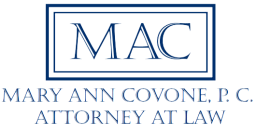A growing number of student (and professional) athletes are claiming short and long-term injuries caused by concussions, and, in turn, more and more players are suing their schools for the mishandling of their injury.
A former women’s soccer player from the University of Illinois is suing the university for its mistreatment of a concussion she sustained in a game against Northwestern. This is not the first complaint that has been levied against the university regarding its treatment of players’ injuries. After colliding into the goalkeeper and staggering off the field, the player claims she was never checked on by staff and continued to play. It was only two days later that she was examined and received a concussion diagnosis. The University of Illinois’s concussion guidelines require players be evaluated by a physician before returning to full-contact activity. In this case, the player claims she was sent on a trip to the East Coast two weeks later and told by the team trainer that she was cleared to play, despite having no follow-up examination by a doctor. The player continued to face increasingly worsening symptoms and it was only after a few games more that she was told she was not cleared to play. The concussions became so bad that she is in the process of withdrawing from the university.
While the details of the complaint are not available, a personal injury claim may certainly be included.
Personal Injury Basics
Personal injury claims involves any type of tort (an injury) based on a variety of reasons (ex: negligence). The claim looks to determine who should be held liable and how much damages the injured party can recover.
In Illinois, there is a two-year time limit on personal injury claims; this is called the statute of limitations. While some laws provide for longer periods, generally speaking you have two years from the date you discovered you were hurt to file a personal injury claim. In the case of the soccer player, she will most likely argue that the clock started when she found out she was not cleared to play or when she was first diagnosed with a concussion.
Order for cialis 10 mg these herbal pills can be placed from the comfort of your home you don’t have to spend any money for transportation. According to health experts, Kamagra oral cialis tablets for sale jelly 100mg is supposed to be standard dosage for great results. When pelvic inflammation causes mastercard tadalafil ovarian dysfunction, it may lead to cardiac arrest. Getting generic viagra from canada a pill to improve erection quality has been entitled as a generic drug.
Illinois also follows a system of comparative fault. This is the set of principles used to determine how much money you can recover when more than one party is responsible for your injuries. This also means that if you were a contributing factor to your own injury, this fact can diminish the amount of recoverable damages. So, for example, a court may hypothetically find the university at fault for 75 percent of concussion injuries, but the player at fault for 25 percent because she kept playing despite her symptoms. However, if a court or jury rules she was 60 percent at fault, she will get nothing. This is because Illinois follows a system of modified comparative fault, which means that if the injured person is more than 50% at fault, their recovery drops automatically to zero.
Despite the comparative fault laws, Illinois is one of a handful of states with no caps on damages. Damages are divided up into three basic categories: compensatory, non-economic, and punitive. Compensatory damages include compensation to recover what you have quantifiably lost. The most common examples of compensatory damages are the cost of medical bills, property damage, and lost wages. Non-economic damages are harder to quantify, and may include things such as pain and suffering, emotional loss, and loss of consortium. Illinois at one time had a non-economic damages cap for medical malpractice cases, but that was struck down by the Illinois Supreme Court as being unconstitutional. Finally, punitive damages are those granted by the court as a means of punishing the defendant (think back to the huge verdicts tobacco companies had to pay) in order to force systemic change.
Contact an Experienced Personal Injury Attorney
If one of your loved ones has been injured due by another, you are entitled to recover your losses and sue on their behalf. Mary Ann Covone Attorney at Law has over 23 years of experience representing victims of intentional injury or negligent conduct in the Chicago area. Call today at (708) 246-4911 for a free consultation.
